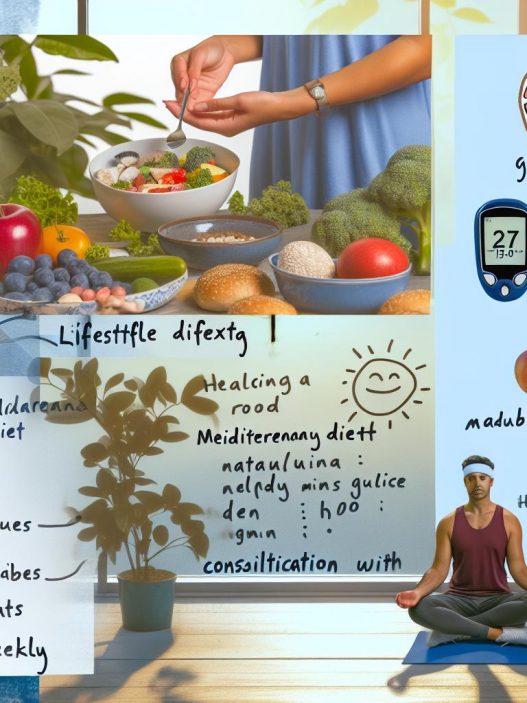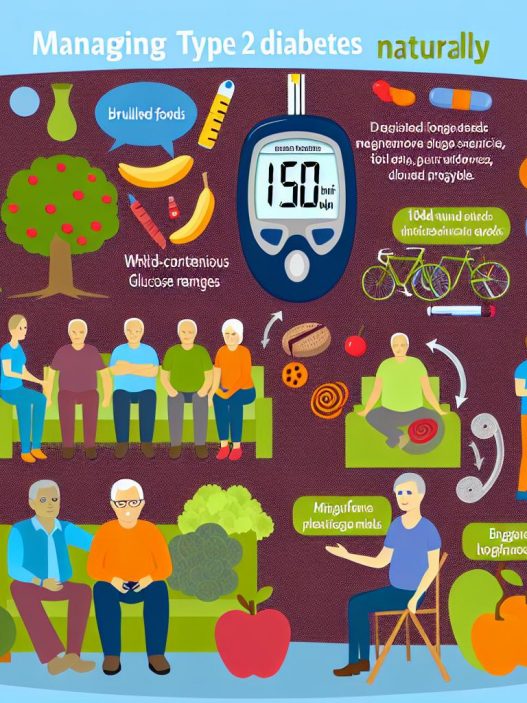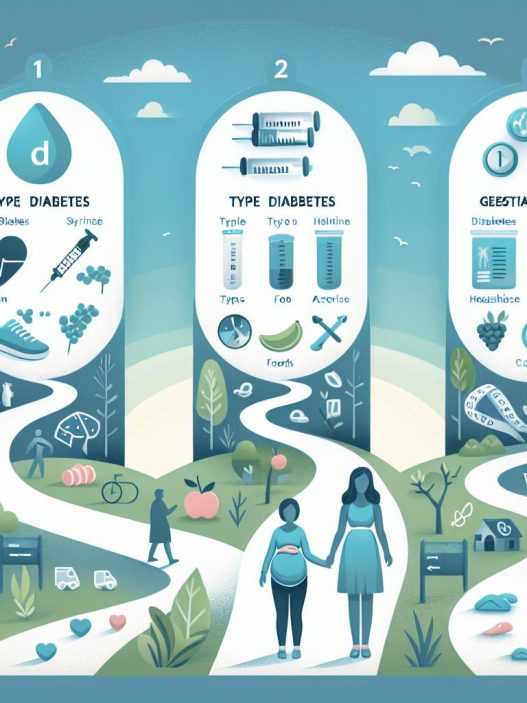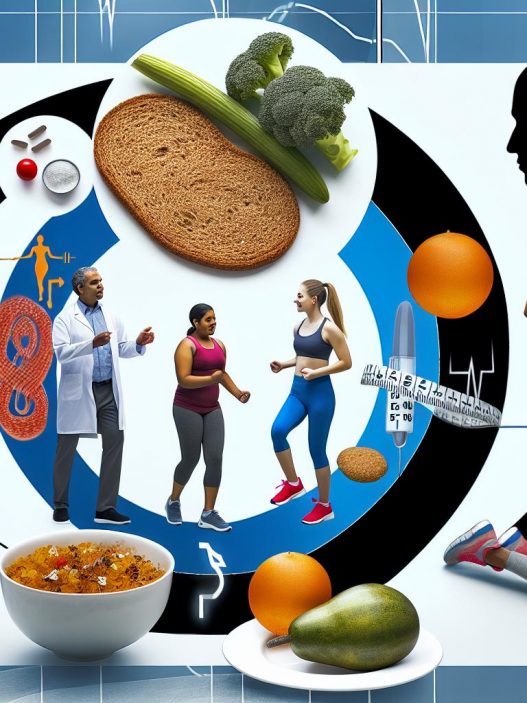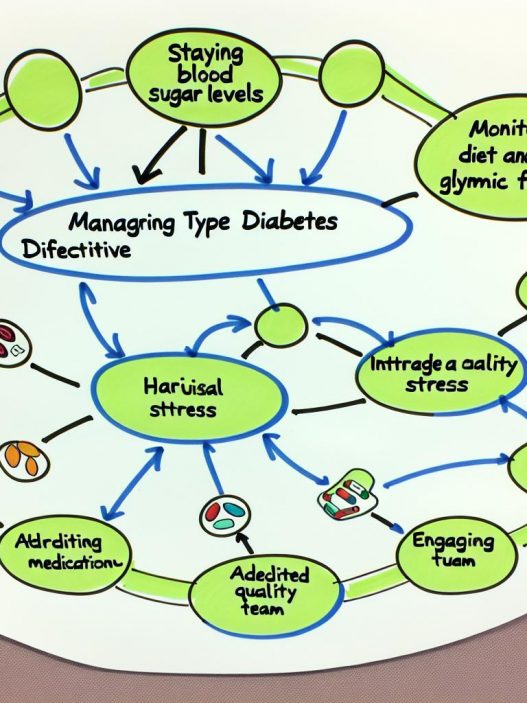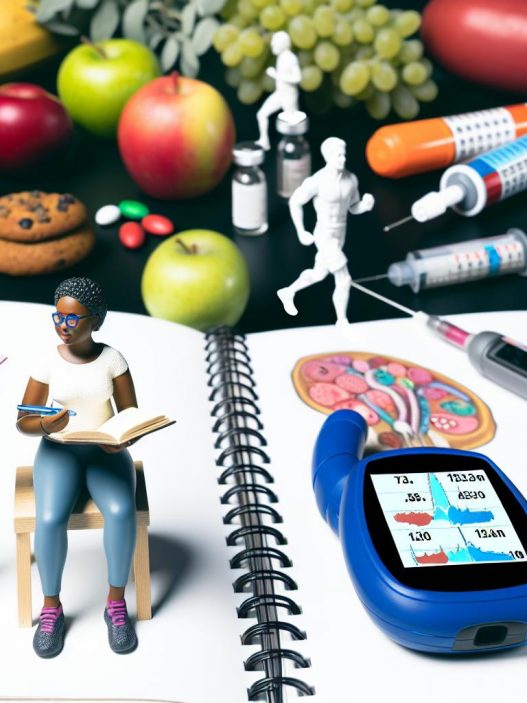# Essential Tips for Managing Type 2 Diabetes Effectively
Managing Type 2 diabetes effectively is vital for maintaining your health and improving your quality of life. With the right strategies, including dietary adjustments, effective monitoring, and lifestyle changes, individuals can take control of their condition and lead healthier lives. This comprehensive guide will delve into essential tips for managing Type 2 diabetes, ensuring you have the knowledge to make informed decisions and implement practical strategies.
Understanding Type 2 Diabetes: The Basics
Type 2 diabetes is a chronic condition that affects the way your body processes glucose, or sugar. Unlike Type 1 diabetes, where the body produces little or no insulin, individuals with Type 2 diabetes can still produce insulin, but their bodies do not use it effectively. This leads to elevated blood sugar levels, which, if left unmanaged, can result in various health complications including heart disease, kidney damage, and vision problems.
Understanding the underlying causes and risk factors associated with Type 2 diabetes is crucial for effective management. Factors such as obesity, sedentary lifestyle, and genetics play a significant role in the disease’s development. Recognizing these aspects enables individuals to make informed decisions about their health and take proactive steps toward management.
Adopting a Balanced Diet: Key Strategies for Success
One of the most crucial aspects of managing Type 2 diabetes is adopting a balanced diet that stabilizes blood sugar levels. This means focusing on whole foods rich in nutrients while minimizing processed sugars and unhealthy fats. Incorporate a variety of fruits, vegetables, whole grains, lean proteins, and healthy fats into your meals.
**Monitor Carbohydrate Intake**
Carbohydrates have the most significant impact on blood sugar levels, making it essential to monitor your intake. It’s beneficial to work with a dietitian to develop a meal plan that fits your lifestyle and nutritional needs. The glycemic index (GI) can be a useful tool—they rank carbohydrates based on how they affect blood sugar levels. Opt for low-GI foods like whole grains, legumes, and non-starchy vegetables, which release their sugar more slowly, preventing spikes in blood sugar.
**Stay Hydrated and Reduce Alcohol Consumption**
Drinking enough water is essential for everyone but is particularly important for those managing Type 2 diabetes. Staying hydrated helps regulate blood sugar levels and prevents dehydration, which can occur with high blood sugar levels. Moreover, while moderate alcohol consumption may be acceptable, it’s crucial to monitor your intake, as alcohol can affect blood sugar levels, sometimes leading to dangerous lows or unexpected highs.
Regular Physical Activity: A Vital Component
Incorporating regular physical activity into your routine is another critical element of managing Type 2 diabetes effectively. Exercise not only helps maintain a healthy weight but also improves insulin sensitivity, allowing the body to use insulin more effectively.
**Aim for Consistency and Variety**
Aim for at least 150 minutes of moderate-intensity aerobic activity each week, such as brisk walking or cycling. It’s vital to incorporate strength-training exercises into your weekly routine as well, as building muscle can further enhance insulin sensitivity. Finding activities you enjoy can make it easier to stay motivated and engaged, whether it’s dancing, swimming, or playing a sport.
**Monitor Your Blood Sugar Levels**
Engaging in physical activity can have immediate effects on your blood sugar levels. Understanding how different types and intensities of exercise affect your body allows for better management. Regularly monitor your blood sugar before, during, and after exercise sessions to understand how your body responds. This knowledge can empower you to adjust your food intake and medication if necessary.
Regular Monitoring and Medication Management
For individuals with Type 2 diabetes, regular monitoring of blood glucose levels is essential for effective management. Keeping track of your numbers helps identify patterns, manage medication, and make necessary lifestyle adjustments.
**Understanding Your Numbers**
Aim to closely follow your healthcare provider’s recommended blood sugar targets. Most guidelines suggest fasting levels should be between 80-130 mg/dL, and post-meals levels should be less than 180 mg/dL after two hours. Understanding what your numbers mean and working towards keeping them within that range can significantly reduce the risk of complications associated with diabetes.
**Medication Management Strategies**
For some, lifestyle changes alone may not be enough to manage blood sugar levels, necessitating the need for medication. It’s important to adhere to prescribed medications as directed by your healthcare provider. In some cases, medications may need to be adjusted based on your blood sugar levels, dietary changes, or increased physical activity, so regular communication with your healthcare team is essential.
Emotional Health and Support: The Overlooked Aspect
Managing Type 2 diabetes is not only a physical journey but an emotional one as well. Coping with the demands of the condition can lead to feelings of anxiety and depression, which can negatively impact your health. Therefore, addressing emotional health is crucial in the comprehensive management of diabetes.
**Build a Support Network**
Connecting with others who understand what you’re going through can provide tremendous support. Seek support from family, friends, or join a diabetes support group. Sharing experiences, challenges, and successes with others can provide motivation and reduce feelings of isolation.
**Consider Professional Help If Needed**
If feelings of sadness or anxiety persist, seeking professional help from a mental health professional experienced in diabetes management is beneficial. Counseling or therapy can provide valuable techniques for coping with the emotional burden of diabetes, leading to improved overall well-being.
Education and Awareness: Your Best Defense
Continuous education and awareness about Type 2 diabetes are essential for effective management. Knowledge is power, and understanding the disease can help individuals make informed decisions about their health.
**Stay Informed of Latest Research and Developments**
New research and advancements in diabetes care are continually emerging. Staying informed about the latest studies, dietary recommendations, and medication options can enhance management strategies. Attending diabetes education classes or workshops organized by healthcare facilities can provide crucial insights into living with Type 2 diabetes.
**Engage in Self-Management Education Programs**
Many healthcare facilities offer self-management education programs that equip individuals with essential skills for managing their diabetes. Topics often covered include meal planning, blood sugar monitoring, and avoiding complications. Educating yourself empowers you to take charge of your health and leads to better outcomes.
In conclusion, managing Type 2 diabetes effectively requires a combination of informed decision-making and lifestyle changes. By adopting a balanced diet, incorporating regular physical activity, monitoring your blood sugar, and acknowledging the emotional aspect of diabetes, you can create a personalized strategy that enhances your quality of life. Through education, awareness, and a supportive network, you are equipped to take on the challenges that come with Type 2 diabetes and lead a healthier, more fulfilling life.













